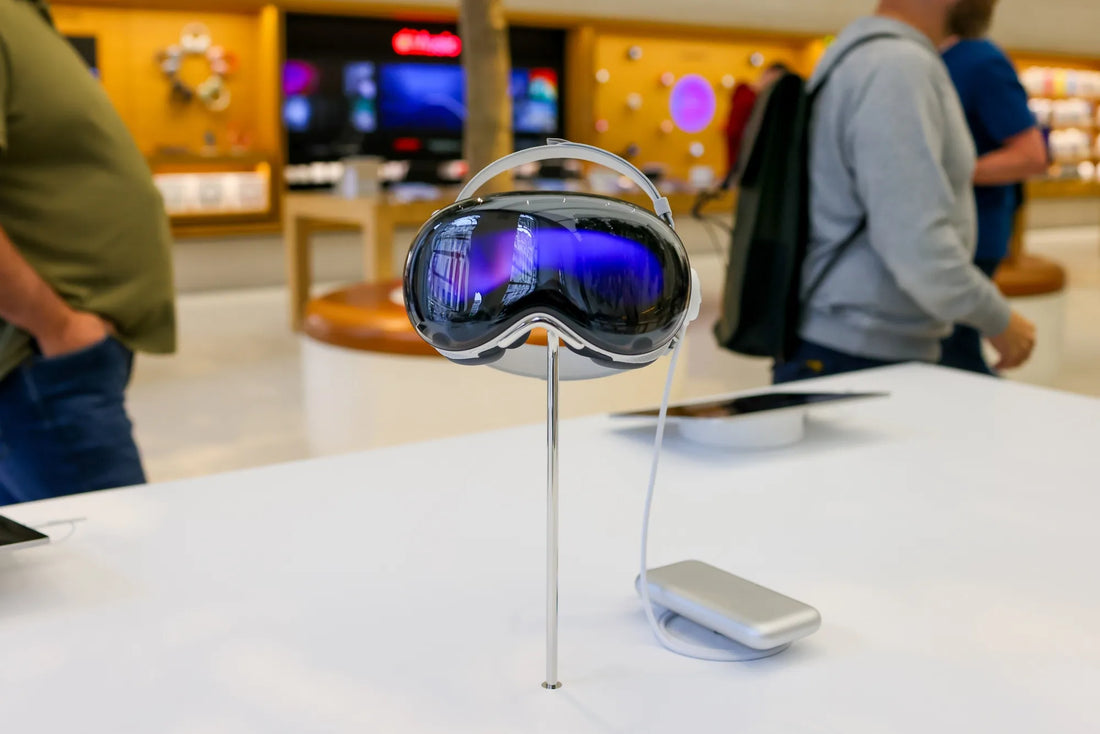
Apple Pauses Vision Pro Redesign to Focus on AI-Powered Smart Glasses
Share
Apple is hitting pause on its next-generation Vision Pro headset to redirect resources toward a more urgent project: AI-powered smart glasses designed to rival Meta’s growing lineup of wearable tech. The shift signals a major rethink of Apple’s mixed-reality strategy following the Vision Pro’s rocky debut.
From Headsets to Glasses
Apple’s more affordable Vision Pro redesign (codenamed N100) had been targeting a 2027 launch, but Bloomberg reports the project is now largely on hold. Instead, Apple is ramping up development of at least two smart glasses models:
-
N50: Could be previewed as soon as next year, with a 2027 release in sight.
-
Advanced Glasses: A second version with a built-in display, originally set for 2028, may now arrive sooner to directly challenge Meta’s Ray-Ban Display.
What to Expect From Apple Glasses
The glasses are expected to focus heavily on voice control and AI integration, with Apple exploring features such as:
-
Built-in speakers and cameras.
-
A custom chip for efficiency and connectivity.
-
Multiple styles to make them look like regular eyewear.
-
Potential health-tracking features to align with Apple’s wellness ecosystem.
This strategy dovetails with CEO Tim Cook’s long-held belief that glasses are a more natural fit for social interaction than enclosed headsets.
AI: Apple’s Missing Piece
A big hurdle for Apple is AI. The company’s most advanced rebuild of Siri—a cornerstone for any wearable—has been delayed until 2026. Meanwhile, rivals are moving quickly:
-
Meta has been iterating on smart glasses since 2021, with the latest Ray-Ban Meta and Ray-Ban Display already on the market.
-
Amazon, Google, and OpenAI (with former Apple design chief Jony Ive) are also rushing to ship AI-first devices.
What About Vision Pro?
Apple isn’t abandoning Vision Pro entirely. Reports suggest a refresh with a faster chip could land by the end of this year. But the bold “Vision Air” concept—meant to be lighter, cheaper, and more mainstream—appears shelved for now.
The Bigger Picture
Apple’s pivot underscores both the challenges of selling $3,500 headsets and the urgency of responding to AI-powered competition. If successful, Apple Glasses could finally deliver the seamless, everyday wearable experience that Tim Cook envisioned nearly a decade ago—when he said people would always prefer devices that keep them social, connected, and comfortable.

